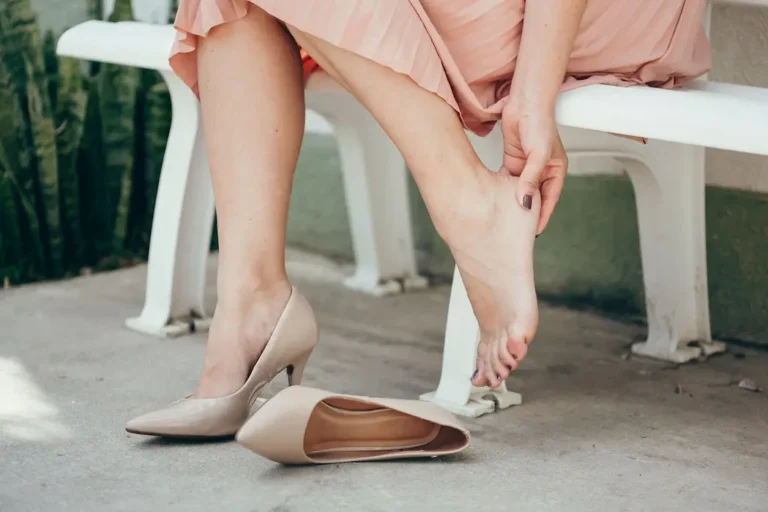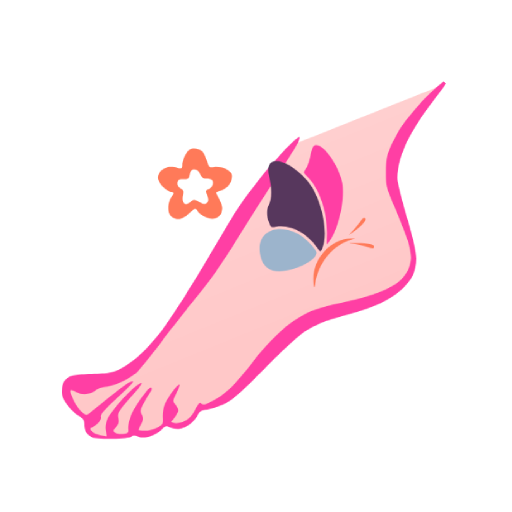Few things are as embarrassing as slipping off your shoes in a social setting, only to be met with an unpleasant odor emanating from your feet. Foot odor, medically known as bromodosis, can be an uncomfortable and socially awkward problem to deal with.
The Science Behind Foot Odor
From that whiff when you kick off your shoes to the lingering embarrassment, foot odor is a common problem that many of us have faced.
The Role of Sweat
Sweat is the body’s natural cooling mechanism, but can also create the perfect environment for bacteria to thrive. The sweat glands in our feet produce moisture, creating a damp and warm atmosphere, which is a breeding ground for odor-causing bacteria.
Bacteria: The Culprits
The primary reason your feet smell is bacteria. When bacteria on your skin break down sweat, they release unpleasant-smelling compounds. This process is similar to how bacteria in your armpits cause body odor.
Common Causes of Persistent Foot Odor
You’re not alone if you’ve ever questioned why your feet seem to have a perpetual pungent presence. We’ll dissect the common culprits behind that lingering foot odor, shedding light on the everyday factors that can turn your feet into fragrant foes.
Poor Hygiene
One of the most common reasons for persistent foot odor is poor hygiene. Failing to wash your feet regularly, not drying them properly, or wearing dirty socks and shoes can lead to a buildup of bacteria and sweat.
Wrong Footwear
Your choice of footwear matters more than you might think. Shoes made from synthetic materials don’t allow your feet to breathe, trapping sweat and creating an ideal environment for bacteria.

Medical Conditions
Medical conditions like hyperhidrosis (excessive sweating), fungal infections, or metabolic disorders can contribute to foot odor. These conditions may require professional medical attention.
Why do my feet smell so bad after work?
After a long day of work, it’s not uncommon for your feet to emit an unpleasant odor, leaving you wondering why this happens. Throughout the day, especially if your job keeps you on your feet, your feet can sweat profusely. This sweat becomes trapped within your socks and shoes, creating a moist environment that is ideal for bacteria to thrive.
Tips for Preventing Foot Odor
The typical culprits behind that lingering foot odor, shedding light on the everyday factors that can turn your feet into fragrant foes.
Proper Foot Hygiene
Regularly wash your feet with soap and water, thoroughly drying them, especially between the toes. Keeping your feet clean is the first step in preventing foot odor.
Shoe Selection Matters
Additionally, consider using moisture-wicking socks to keep your feet dry.
Foot Powders and Sprays
Foot powders and sprays can help absorb excess moisture and keep your feet dry throughout the day. Look for products containing ingredients like talcum powder or baking soda.
Why do My Feet Smell so Bad?😊https://t.co/eZld14STyw#feetscare #feetmodels #feetofig #feetsmell #freerunning #cutefeet #feetpic #feet_lover #feetseller pic.twitter.com/12uGv5fzQ9
— Sellfeetpics (@sellfeetpicsco) September 24, 2023
Home Remedies to Combat Foot Odor
When your feet emit unpleasant odors, it’s time to turn to the remedies that can rescue you from this stinky situation.
Epsom Salt Soaks
When dissolved in warm water, Epsom salt can help reduce foot odor. Soak your feet for 15-20 minutes daily to combat bacteria and refresh your skin.
Vinegar Solution
A mixture of vinegar and water can create an inhospitable environment for bacteria. Soak your feet in a solution of one part vinegar to two parts water for 15 minutes, then thoroughly rinse and dry.
Baking Soda Scrub
Baking soda is a natural deodorizer. Create a paste with baking soda and water, scrub your feet, and rinse. This can help neutralize odors.
When to Seek Professional Help
While home remedies can work wonders, there are times when persistent foot odor demands the expertise of a professional.
Podiatrist Consultation
If your foot odor persists despite home remedies and lifestyle changes, it may be time to consult a podiatrist. They can identify any underlying medical conditions and recommend suitable treatments.
Medical Treatments
In severe cases, your doctor may prescribe antifungal creams or antibiotics or even recommend Botox injections to reduce sweating.
Myths About Foot Odor Debunked
Foot odor is a topic surrounded by misconceptions and old wives’ tales. In this section, we’ll separate fact from fiction and unveil the truth behind some of the most common myths surrounding foot odor.

It’s All About Sweat
While sweat is a contributing factor, foot odor is primarily caused by bacteria breaking down sweat. Managing bacteria is critical to combating foot odor.
Only People with Poor Hygiene Experience Foot Odor
Foot odor can affect anyone, regardless of hygiene habits. It’s often related to factors like genetics, shoe choice, and medical conditions.
Conclusion
Foot odor can be an embarrassing and uncomfortable issue, but it’s a common problem with practical solutions. By understanding the science behind it and implementing good hygiene practices, you can confidently kick off your shoes without worrying about unpleasant odors.
FAQs
What causes feet to smell bad?
Foot odor is primarily caused by bacteria breaking down sweat on the skin, releasing unpleasant-smelling compounds.
Can foot odor be a sign of a serious medical condition?
Yes, persistent foot odor can sometimes be a symptom of an underlying medical condition. If home remedies don’t work, consult a doctor.
Are there any natural remedies for foot odor?
Natural treatments like Epsom salt soaks, vinegar solutions, and baking soda scrubs can help combat foot odor.
Is foot odor contagious?
No, foot odor itself is not infectious. However, the bacteria responsible for the odor can be transferred through contact.
Why do my feet smell even after washing?
Sometimes, even with regular washing, foot odor can persist because the bacteria that cause the smell have become deeply embedded in your skin or shoes.
Are smelly feet healthy feet?
Not necessarily. While occasional foot odor is common and usually harmless, persistent foot odor can indicate underlying issues like fungal infections or excessive sweating (hyperhidrosis).








